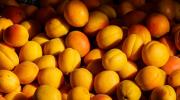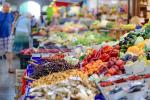LIFE Project: Verification of the closed loop of recycled and reused polyolefin boxes, drums, and cans
- Type Project
- Status In progress
- Execution 2023 -2026
- Assigned Budget 2.657.110,00 €
- Scope Europeo
- Autonomous community Comunitat Valenciana
- Main source of financing LIFE
- Project website Web del proyecto
The LIFE CLOOVER2 project aims to develop and demonstrate a closed eco-design loop for reused and recycled commercial and industrial plastic packaging by creating a new interconnection model across the entire plastics value chain for application in the agri-food sector. This model, based on the recirculation of plastic packaging, will contribute to reducing the current environmental impact resulting from plastic manufacturing.
In Europe, around 25.8 million tonnes of plastic waste are generated each year (Plastics Europe, 2018). Only 9% of this plastic waste is recycled. Another 19% is incinerated, 50% ends up in landfills, and 22% escapes waste management systems altogether (e.g., through illegal dumping), especially in poorer countries (Global Plastics Outlook. OECD, 2022). In the EU, the reuse and recycling potential of plastic waste remains largely untapped compared to other materials such as paper or glass. In recent years, the potential of the EU plastics recycling sector has been held back by low raw material prices and uncertainties about the market prospects and associated profitability of recycled plastic materials. At the European level, packaging represents by far the largest end-use market for plastic materials, accounting for 39.6% of total plastic demand in Europe.
Plastic packaging is widely used in today's agricultural sector and throughout the food value chain. In 2019, the agricultural sector used 12.5 million tons of plastic products in plant and animal production and 37.3 million tons in food packaging. Although the total volume of plastic packaging waste sent for recycling increased by more than 92% between 2006 and 2018, 3.3 million tons of plastic packaging waste still ends up in landfills. In Spain, in the 1990s, 90% of fruit and vegetable crates were made of wood; currently, 60% of crates are made of plastic. In the coming years, the use of plastic packaging in Spain is expected to increase in the commercial distribution, storage, and preservation of fruits and vegetables.
- Demonstrate four closed R2 loops for crates, drums, and cans. Each loop will combine reuse and recycling (R2) processes, considering several possibilities for different numbers of reuse cycles. Smart toolkits (guidelines) for loop implementation will be developed to facilitate the transfer and replication of the developed solution.
- Generate connection networks between companies in the value chain by creating closed loops to ensure their viability and proper functioning. This will be done by promoting the establishment of local business networks that ensure closed loops for each type of plastic packaging.
- Increase the flow of recycled polyolefins in contact with food, in accordance with EFSA food safety requirements, by establishing "crates2crates," "drums2drums," and "jerrycans2jerrycans" loops, similar to "bottle2bottle" for PET.
- Provide extended producer responsibility (EPR) schemes in Europe with tools to help their existing loops implement closure (i.e., recycling recovered products and using them to manufacture the same products again, thus closing the loop and keeping the material within the sector) and reference data for eco-modulated tariffs.
- Introduced 4,928.17 kg of recycled plastic into the market through the production of recycled boxes, drums, and jugs commonly used in the agri-food sector, increasing the recycling rate in Spain by 10% by the end of the project.
- Reduction of plastics sent to landfills (10,000 tons of plastics are expected to be diverted by the end of the project in the project implementation area).
- The establishment of networks connecting companies in the value chain necessary to implement closed loops for the reuse and recycling of commercial and industrial plastic packaging.
- Demonstration of an alternative (circular) scenario to the current (linear) one in the management of commercial and industrial plastic packaging in Europe, integrating a new approach based on eco-design, reuse, and recycling.
- Coordinator/entity name: Teresa Martínez Rodríguez
Postal address: CALLE 200 NUM 42, 46182, PATERNA
- SINTAC RECYCLING SL
- SINTAC POLYMERS AND COMPOUNDS SL
- AGROFRESH FRUIT PROTECTION S.A.
- CAJAS Y PALETS EN UNA ECONOMIA CIRCULAR
- ASOCIACION DE MAYORISTAS ASENTADORES DE FRUTAS Y VERDURAS
- PALEC ECOLOGICO SL
- REYDE SA







